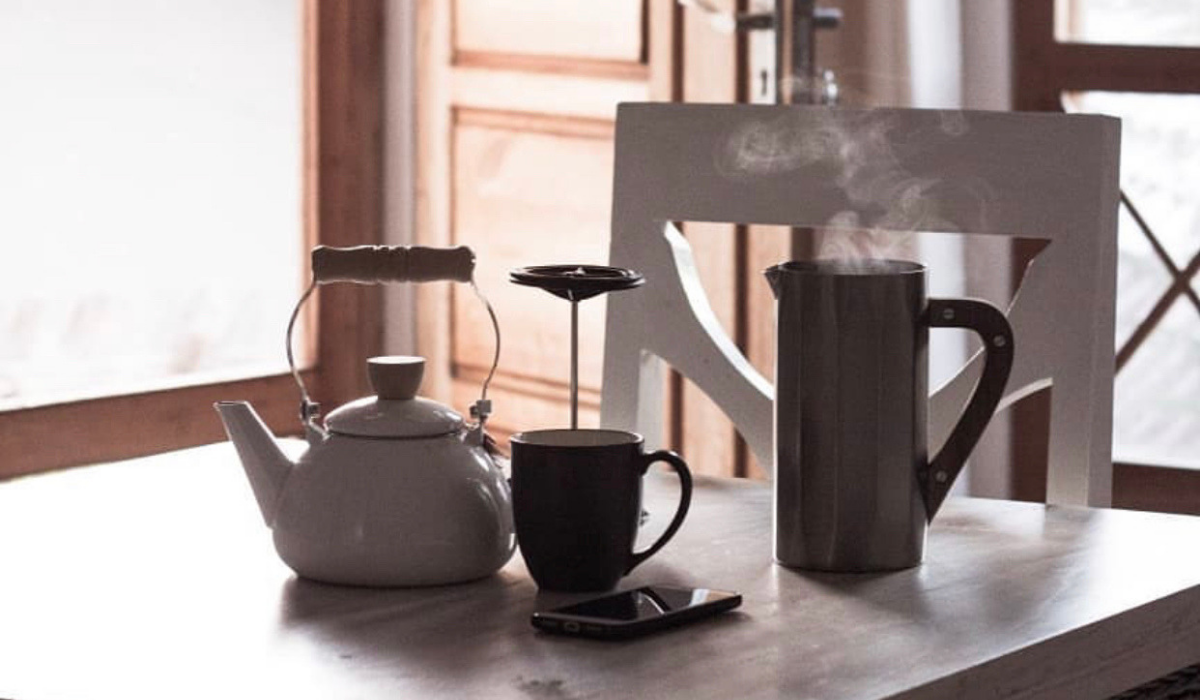Creating Rhythms in an Unpredictable Life
“Although my life may not be conducive to a structured routine, having healthy rhythms to frame my days around helps me to stay settled and at peace.“
An unexpected visitor at your door. Not finding the ingredient you planned to use for dinner. Waiting out a rainstorm because you’re riding a motorbike. Changes in visa policies. Unplanned medical trips.
Life in a foreign context invites unending surprises and unwelcome interruptions almost daily. As a person who thrives on predictability and still uses an old-school paper planner, this reality made adjusting to life in my host country quite challenging. If we aren’t careful, we can begin to resent our host country and our neighbors when things aren’t done according to our personal preferences.
I mean, to me it makes sense to call ahead before showing up on someone’s doorstep. But for my friends here? Well, that just doesn’t seem necessary. They can’t understand why I would be startled to find my neighbor in my bedroom doorway at 7:00 a.m. while I’m still rubbing the sleep out of my eyes.
Silly American.
Realizing I cannot control many of the circumstances around me and letting go of the need to do so has been instrumental in finding joy in my unpredictable life here. Having a routine in Southeast Asia? That’s laughable. But creating a gentle rhythm for my days here?That is doable.
Although my life may not be conducive to a structured routine, having healthy rhythms to frame my days around helps me to stay settled and at peace. I’d like to share a few of those rhythms with you, and encourage you to think about how you might begin to create your own rhythm if you haven’t already done so.
Morning Rhythm
Having a rhythm to my mornings makes an exponential difference in the way I lean into my days.For me, that looks like waking up before the rest of the family, walking down the stairs, and pulling back the curtains so the morning light can stream through.It means brewing coffee in my French press and drinking a few cups (because the only thing better than coffee is MORE coffee) while I study my Bible and spend time in prayer and silence.It feels like creating space to let gratitude be stirred in my heart and bubble to the surface in praise for this life I get to live.My morning rhythm sets the tone for my day.
Themed Days
I got this idea from author Emily P. Freeman on her podcast, The Next Right Thing.She talks about having themes for each day based on the different roles we have and hats we wear.For example, I am a homeschool mom, an English teacher, a cross-culture worker, a language learner, and a writer.On Mondays, I devote time to preparing for English classes at our language center.Tuesdays I set aside time to write.Wednesdays I focus on communicating with supporters and other tasks related to our work abroad.Thursdays are for language study, and Fridays are prepping homeschool for the coming week.Weekends are reserved for rest and staying in touch with family and friends back home.Having a theme to my day helps me not to get bogged down and overwhelmed, but also allows for flexibility.
Meals
I love food, so naturally having a rhythm for meals in our home matters. I tried meal planning, but that only added to my stress since it's not uncommon for basic ingredients to be available one week and gone the next.So, instead of planning each meal ahead of time, I’ve gone with themes here as well.Monday is stir-fry or some type of Asian cuisine with rice.Tuesday is for tacos because, well, Taco Tuesday can and should live on in Southeast Asia, am I right? On Wednesday, something is thrown in the crockpot- soup, bbq pork, shredded chicken- and served with rice or bread.Thursday we typically eat out, and Friday is family pizza night -- made from scratch or ordered from a local place if I am short on time or ingredients.Saturday and Sunday are a little more spontaneous since we often get together with friends or have other events happening. Creating themes to our dinners has helped cut the unnecessary stress of wondering what to cook, but also allows us to work with whatever ingredients we may have on hand at the time.
Sabbath
After twelve years of vocational ministry before moving overseas, I had a very skewed view of what Sabbath meant -- because Sundays were the most hectic and exhausting day of the week. Since moving abroad, we have been able to get back to what the biblical meaning of this day truly is: making an intentional effort to carve out twenty-four hours of rest each week.
The day this actually happens varies, but we realize how deeply we need this space to breathe, rest, disconnect from the world, and connect with God and each other. For us, Sabbath has become more about what we don't do than what we do. We don't work or do big projects or check things off to-do lists. We don't send e-mails or work on lesson plans. Taking into account what each person in our family finds to be restful, we try to honor that in some way. That can look like playing games, reading, worship, baking, exploring outdoors, watching a movie, or taking a nap.
Not only is Sabbath important for our physical bodies, but it also helps us to release the mental and emotional stress of trying to control outcomes when we put down our to-do lists and just rest in the sovereignty of our Almighty Father.As my husband says, “God isn’t in a rush, so we don’t have to be either.”
Evening Rhythm
Just as I start my day with a morning rhythm, I find that closing out my day, in the same way, keeps me grounded.Some nights we have late dinners because of classes and it’s off to bed shortly after.
Other evenings we have some family reading, games, or TV time after dinner to wind down.But each evening includes family time, bedtime routine, tucking in the kids and saying prayers, and then having some time for my husband and me to talk or watch a show together.Having this rhythm not only helps me, but it helps my kids to know what to expect once dinner is over, making bedtime less chaotic.
That’s not to say that we don’t still have the occasional upset, but overall it allows for a more peaceful ending to our days.I don’t know that I’ll ever get used to things taking twice as long as I’d expect here, or waiting two weeks to get butter in the store again, or the last-minute wedding and dinner invitations that mean rearranging our plans.But having these simple rhythms to my days helps me to be more gracious and flexible when those unexpected things do come up. What rhythms have you instituted in your life that help you deal with cross-culture living?


